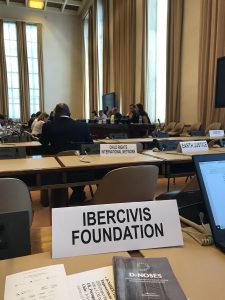Persistent environmental odours can be much more than just nuisance and evidence is mounting of its serious effects on affected populations. Citizen science can empower communities to take action where regulations are not sufficient to protect their interests. The D-NOSES team believes we can create a framework for an inclusive, multi-stakeholder citizen science based odour governance model.
#notjustnuisance #odourpollution #citizenscience

Citizen science as applied to environmental odour pollution offers at least one great advantage over other measurement techniques – they can measure the actual impact on people rather than just the physical presence and concentration of odours. Electronic noses and official odour measurements are unable to record the effects, either short term or long, of noxious odours in people’s lives. Many studies have already shown that the effects of odours are not limited to the nuisance, but can affect personal and community health through headaches, sleeplessness, nausea and other physiological as well as psychological issues. Further, studies have shown also the practical and economic realities of odour ‘nuisance’ as connected to a fall of productivity, reduced economic activity and lowered house prices.
The negative effects of persistent odours have caught the interest and attention from international organisations, which have also become more active on this issue. The World Health Organisation (WHO), has affirmed that odour nuisance affects quality of life, and therefore the social wellbeing dimension of health. They also define a nuisance threshold based on the size of the affected population (less than 5%) and the duration of exposure (less than 2%), explicitly acknowledging impact rather chemical concentration. The European Court of Human Rights (EHCR) similarly has ruled explicitly that smells can materially affect people’s well-being and can be in breach of Article 8 of the European Convention on Human Rights. The Aarhus Convention on Access to Information, Public Participation in Decision-making and Access to Justice in Environmental Matters, which embodies Principle 10 of the Rio Declaration, recently heard a statement from Rosa Arias on the D-NOSES project and its odour specific goals during its meeting in June.

The growing recognition of persistent environmental odours as a serious problem at an international level is another sign that the time has come to begin the work of introducing common sense odour governance that works to protect exposed populations. D-NOSES will be playing its part by collecting the data and evidence of the problems, as well as suggesting creative pathways to fair resolutions, and finally proposing a balanced, multi-level, and stakeholder inclusive odour governance model.
Get involved!
To learn more, get involved or ask for help, please contact us through the website contact form.